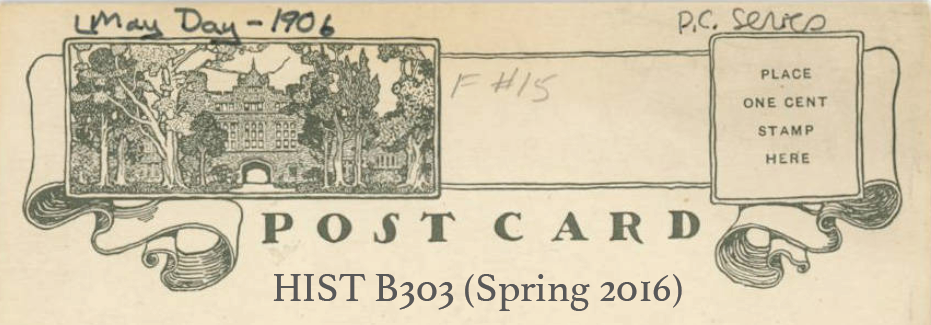“‘Hope’ struck me an overrated force in human history. ‘Fear’ did not.” — Ta-Nehisi Coates, Hope and the Historian, for The Atlantic.
I wholeheartedly agree with Coates on this topic. Many of the historical works that I have read focus around some manner of hopeful conclusion. Even the book on the slave rebellion, which I mentioned in my last post, resolved the ramifications of the conflict in a positive way, despite the rebellion being put down quickly, violently, and with little semblance of justice. It ended on a “sure, everyone died, but things in Parliament got better eventually!” note.
On the other hand, it is rare to see a historical investigation into a topic where things don’t “get better” and the matter is not resolved. One wonders what happens to all of those topics, the ones in which the heroes lose, in which no hope is found. I feel that it is just as important, if not moreso, to search out those histories. Yes, it is important — nay, vital — to the overall historical narrative to resurrect those stories to which history has turned a blind eye. I would argue that it is just as vital to learn from them. What went wrong? Why did this situation go so badly, when others were successful? What does it tell us about the world then, as well as the world now?
Everyone wants a hero. Everyone roots for the underdog to win. Having your protagonist (for retelling history has much in common with literature) lose a hopeless fight is not marketable and, often, one then wonders what impact the losers could have had. Why read about people who failed to make their desired impact? Because their story is part of history, just the same as everyone else. A vital part. A piece of the puzzle. They acted, and were acted upon, within the historical frame. Neglecting them leaves a hole in the image, a silhouette of void that cannot be understood or explained, a forgotten variable in the equation that changes the answer unpredictably. Without understanding this story of hopelessness, one which is arguably far more prevalent than that of hope and successful heroes, one cannot understand the historical narrative or how it led to our current situations. How can one understand, as far as one could, the fear underlying and driving a successful slave rebellion if one does not know the stories of the failed rebellions preceding it?
